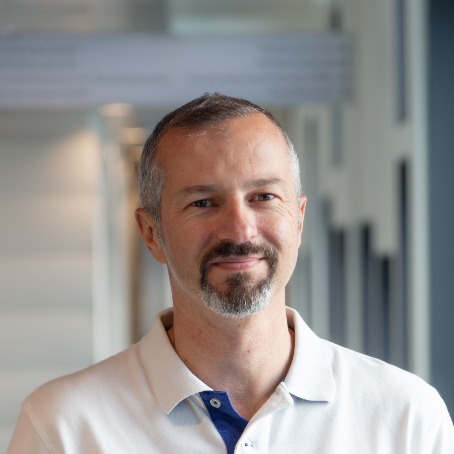New EngD programmes will boost Northern economy

From September, the University of Groningen will start two Engineering Doctorate programmes (EngDs): Autonomous Systems and Sustainable Process Design. During the two-year post-master's programme, trainees will work on complex projects of chemical and high-tech companies in the Northern Netherlands.
Paris Avgeriou, full professor at the UG and Autonomous Systems programme scientific director, is pleased with the recently obtained accreditation for the two Engineering Doctorates. He says the programmes are partly similar to a PhD track. However, there are important differences. 'Generally, a PhD takes at least four years, while this programme lasts two years. Moreover, a PhD is mainly about advancing scientific knowledge, while the EngD is about solving challenges from industry.'
Boost
The EngD programme trains 'highly skilled' engineers, the programme director continues. 'After completing the programme, engineers have in-depth knowledge about Autonomous Systems or Sustainable Process Design. An EngD also earns a recognised engineering doctorate title.' The programme is intended both for newly graduated master students and professionals from the field. 'There are two types of trainees. The just-graduated master students will be employed by the UG. On the other hand, there are engineers from industry who want to grow further in their careers. With an EngD, and while they keep working in their company, they can obtain a nationally and internationally recognised engineering doctorate and are of even more value to the company.'
The programme has a practical approach, says Avgeriou. 'It is about solving real-world problems, leading to product innovation for high-tech companies in the region. As such, we are making real impact and seek to boost the (local) economy.' It also contributes to keeping talent in the northern Netherlands, the programme director continues. 'That is an important goal. Industry in the Northern Netherlands is not very well known among our student population. While there are great opportunities for them.'
Talent and innovation
The EngD programme puts trainees in close long-term contact with companies. And that is of great importance, according to Avgeriou. 'Several high-tech companies in the northern Netherlands develop very advanced systems. However, many of these companies face challenges in finding the right people. With the EngD programme, we want to make the industry in the North more attractive and visible to young, 'highly skilled' engineers.'
For the Autonomous Systems programme, Avgeriou mentions two sectors in which the northern Netherlands excels: Smart Manufacturing and Smart Agriculture. 'Smart Manufacturing revolves around the question: how do you make a factory as efficient as possible? Think of robots in a production line, performing tasks without human intervention. Smart Agriculture is another domain in which we are at the forefront, think for example of robots that harvest fruit and decide for themselves whether it is ripe enough for picking. There is great potential in the Northern Netherlands: there is a lot of demand and companies are growing fast. As a university, we want to help these companies by providing talent and innovation capacity.'
Collaboration
The University of Groningen is the fifth university in the Netherlands with an Engineering Doctorate programme. Eindhoven, Delft, Twente and Wageningen preceded Groningen. 'The UG is the only general university with an EngD programme.’ The other universities were very helpful in setting up the programme, says Avgeriou. 'We are not competing with each other. On the contrary: the four technical universities provided us with great advice and feedback. We also joined the 4TU Stan Ackermans Institute. This institute is responsible for coordinating EngD programmes across all Dutch (technical) universities.'
Cooperation with the Innovation Cluster Drachten is also very important, the professor knows. 'The cluster brought us in touch with the 23 affiliated high-tech companies. We will also use the site of the Innovation Cluster Drachten at the Philips campus as an educational location and as a space to organise meetings with companies. This is very interesting for us, because the Innovation Cluster Drachten is the focal point of the high-tech industry in the Northern Netherlands. This puts us as trainees and university staff right in the middle of the action.'
Partners
The Engineering Doctorate has been made possible by funding from SNN's Just Transition Fund (Samenwerkingsverband Noord-Nederland). 'This grant enables us to partly cover the costs both within the university and at the companies for a period of 3 years. For the university, for example, it concerns the salary costs of staff and teachers. With the funding, companies are enabled to pay about 50 per cent of the trainees' salaries.' In addition, the European Digital Innovation Hub North is a key partner. The aim is to launch 12 to 15 EngD projects in the first year, says Avgeriou. 'These are tailor-made programmes. Some trainees start in September, November and January, depending on the project. It is a continuous intake process.'
Next to Autonomous Systems, Sustainable Process Design will also start in September. The Sustainable Process Design programme focuses on designing technical solutions for the chemical industry. Within this EngD programme, there is close cooperation with the Sustainable Products and Chemicals Cluster, an Emmen-based Green Chemistry business network.
| Last modified: | 06 July 2024 09.11 a.m. |
More news
-
10 June 2024
Swarming around a skyscraper
Every two weeks, UG Makers puts the spotlight on a researcher who has created something tangible, ranging from homemade measuring equipment for academic research to small or larger products that can change our daily lives. That is how UG...
-
21 May 2024
Results of 2024 University elections
The votes have been counted and the results of the University elections are in!
